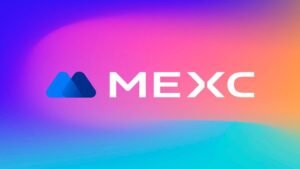The Terra Luna Classic community recently made headlines for rejecting a controversial proposal to increase the validators set to 130 on the blockchain. This decision came after Terraform Labs (TFL) and Do Kwon, the founder of Terra, reached a settlement with the U.S. Securities and Exchange Commission (SEC) for a staggering $4.5 billion. Some speculated that the proposal was an attempt to merge the Luna v2 validators with Terra Classic following the TFL and SEC settlement, aiming to enhance the network’s level of decentralization.
The rejection of the proposed increase in validators set demonstrates the community’s commitment to maintaining the integrity and decentralization of Terra Luna Classic. By choosing to stick with their current set of validators, the community is sending a clear message that they prioritize transparency and fair governance within the blockchain network. The decision also highlights the community’s autonomy and independence in making key decisions that impact the future development of Terra Luna Classic.
The Terra Luna Classic community’s decision to reject the proposal has raised questions about the potential implications for the network’s future growth and adoption. Some members of the community believe that increasing the validators set could have potentially strengthened the network’s decentralization and security, while others argue that maintaining the current set ensures greater control and oversight. Moving forward, it will be crucial for the community to navigate these differing perspectives and collaborate effectively to steer the network towards continued success and sustainability.
Despite the rejection of the proposal, the Terra Luna Classic community remains poised for growth and innovation in the cryptocurrency space. With a strong commitment to decentralization and community governance, the network is well-positioned to continue attracting new users and developers who share similar values and vision for the future of blockchain technology. By fostering a culture of transparency, inclusivity, and collaboration, Terra Luna Classic has the potential to emerge as a key player in the ever-evolving digital asset landscape.
The decision to reject the proposal also reflects the wider challenges facing blockchain projects in navigating regulatory scrutiny and compliance. The settlement between TFL and the SEC for $4.5 billion serves as a stark reminder of the legal risks and complexities involved in operating within the cryptocurrency industry. As the industry continues to evolve, projects like Terra Luna Classic will need to remain vigilant and proactive in addressing regulatory concerns while staying true to their core values and principles.
In conclusion, the Terra Luna Classic community’s rejection of the proposed increase in validators set underscores their commitment to decentralization, transparency, and fair governance. While the decision may have sparked debates within the community, it ultimately reflects a collective desire to uphold the network’s values and integrity. By staying true to these values and embracing collaboration and innovation, Terra Luna Classic is well-positioned to navigate the challenges and opportunities that lie ahead in the dynamic world of blockchain technology.



















